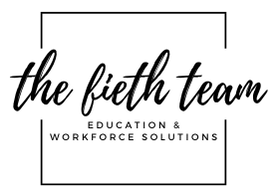Building Workplace Culture is like rafting a river. When the weather is good and the waters are right, all is well. Your equipment and skills are certainly strong enough for the challenges you planned to encounter. But what happens when an unexpected storm interrupts your trip and rough winds and waters cause you to lose an oar or tosses your buddy off the boat? Chances are pretty good you will get down river, but someone is probably going to need an icepack before it's over.
We live and breathe in cultures we create and support every day, but often times, we miss the mark of establishing and refining processes that create strong workplace environments. We repeatedly try to build those processes when the crisis is occurring rather than rely on heavily practiced ways of doing business.
Whether in business or in educational communities, culture is continuously built and refined. It can happen in ways that are thoughtful, but often culture is built by default - a lack of definition around the way we manage ourselves while going about our daily business. In order to meet the high demands placed upon us today in production and competition in the market place or test scores and state level report cards, organizations are well-served to consider what creates and maintains effective workplace culture.
For a quick assessment of established cultures in your organization, consider these four questions:
What is your vision? As an organization, who are you and what does your future hold? Seems easy right? Not quite so fast. Do all employees have the language to message your organization’s emphasis freely and easily? Are they practicing it? Do you see signs of understanding when you go about your day in and among team members? How are you measuring that?
What is your purpose? This is different from vision in that it is not just about the product (i.e. widgets, skills, etc.), rather it is more about the why of what you do. A school district provides education, and it does so to improve the global economy and help create a better quality of life for a nation. Now that's something employees can own.
What are your values? In addition to profit margin or proficiency in scores, what is consistently important to your organization? What do you want to be known for? Is it loyalty to your customer base? Dedication to getting it right? Transparency and honest reporting? Maybe it's a collection of all of those things, but if I asked one of your team members to tell me about this organization's values, would they be able to share the same message you are sharing? Do they believe it?
What's your Wow! Factor? Why should a customer come to your organization above others? If your widget is even remotely similar to others', what makes your organization so special that clients would go out of their way to be loyal? Is it customer service? Quick response or turnaround time? What Wow! are you providing that will keep clients coming back and happy to be investing in you? That same sense of loyalty you are building in clients can be developed in your teams, and if they believe it, they will market that for you - every day. Superior culture development requires a well thought-out, ongoing plan that is pliable when necessary and steadfast at the most difficult of times. It provides teams with consistent and fair accountability and looks for reasons to celebrate. In many cases, it is equally or more important than salary. Strange but true.
A strong culture is what we fall back on when headwinds pick up and get pushy with our boat. It's tempting to wait until the storm arises before investing any real energy in protecting and strengthening your teams - out of sight out of mind kind of thing.
However...
...Organizations who allow themselves to be lulled into a false sense of security find it is too late to refine cultural issues once those skies darken. The time to thoughtfully build and refine is now, ahead of the storm.
We live and breathe in cultures we create and support every day, but often times, we miss the mark of establishing and refining processes that create strong workplace environments. We repeatedly try to build those processes when the crisis is occurring rather than rely on heavily practiced ways of doing business.
Whether in business or in educational communities, culture is continuously built and refined. It can happen in ways that are thoughtful, but often culture is built by default - a lack of definition around the way we manage ourselves while going about our daily business. In order to meet the high demands placed upon us today in production and competition in the market place or test scores and state level report cards, organizations are well-served to consider what creates and maintains effective workplace culture.
For a quick assessment of established cultures in your organization, consider these four questions:
What is your vision? As an organization, who are you and what does your future hold? Seems easy right? Not quite so fast. Do all employees have the language to message your organization’s emphasis freely and easily? Are they practicing it? Do you see signs of understanding when you go about your day in and among team members? How are you measuring that?
What is your purpose? This is different from vision in that it is not just about the product (i.e. widgets, skills, etc.), rather it is more about the why of what you do. A school district provides education, and it does so to improve the global economy and help create a better quality of life for a nation. Now that's something employees can own.
What are your values? In addition to profit margin or proficiency in scores, what is consistently important to your organization? What do you want to be known for? Is it loyalty to your customer base? Dedication to getting it right? Transparency and honest reporting? Maybe it's a collection of all of those things, but if I asked one of your team members to tell me about this organization's values, would they be able to share the same message you are sharing? Do they believe it?
What's your Wow! Factor? Why should a customer come to your organization above others? If your widget is even remotely similar to others', what makes your organization so special that clients would go out of their way to be loyal? Is it customer service? Quick response or turnaround time? What Wow! are you providing that will keep clients coming back and happy to be investing in you? That same sense of loyalty you are building in clients can be developed in your teams, and if they believe it, they will market that for you - every day. Superior culture development requires a well thought-out, ongoing plan that is pliable when necessary and steadfast at the most difficult of times. It provides teams with consistent and fair accountability and looks for reasons to celebrate. In many cases, it is equally or more important than salary. Strange but true.
A strong culture is what we fall back on when headwinds pick up and get pushy with our boat. It's tempting to wait until the storm arises before investing any real energy in protecting and strengthening your teams - out of sight out of mind kind of thing.
However...
...Organizations who allow themselves to be lulled into a false sense of security find it is too late to refine cultural issues once those skies darken. The time to thoughtfully build and refine is now, ahead of the storm.


